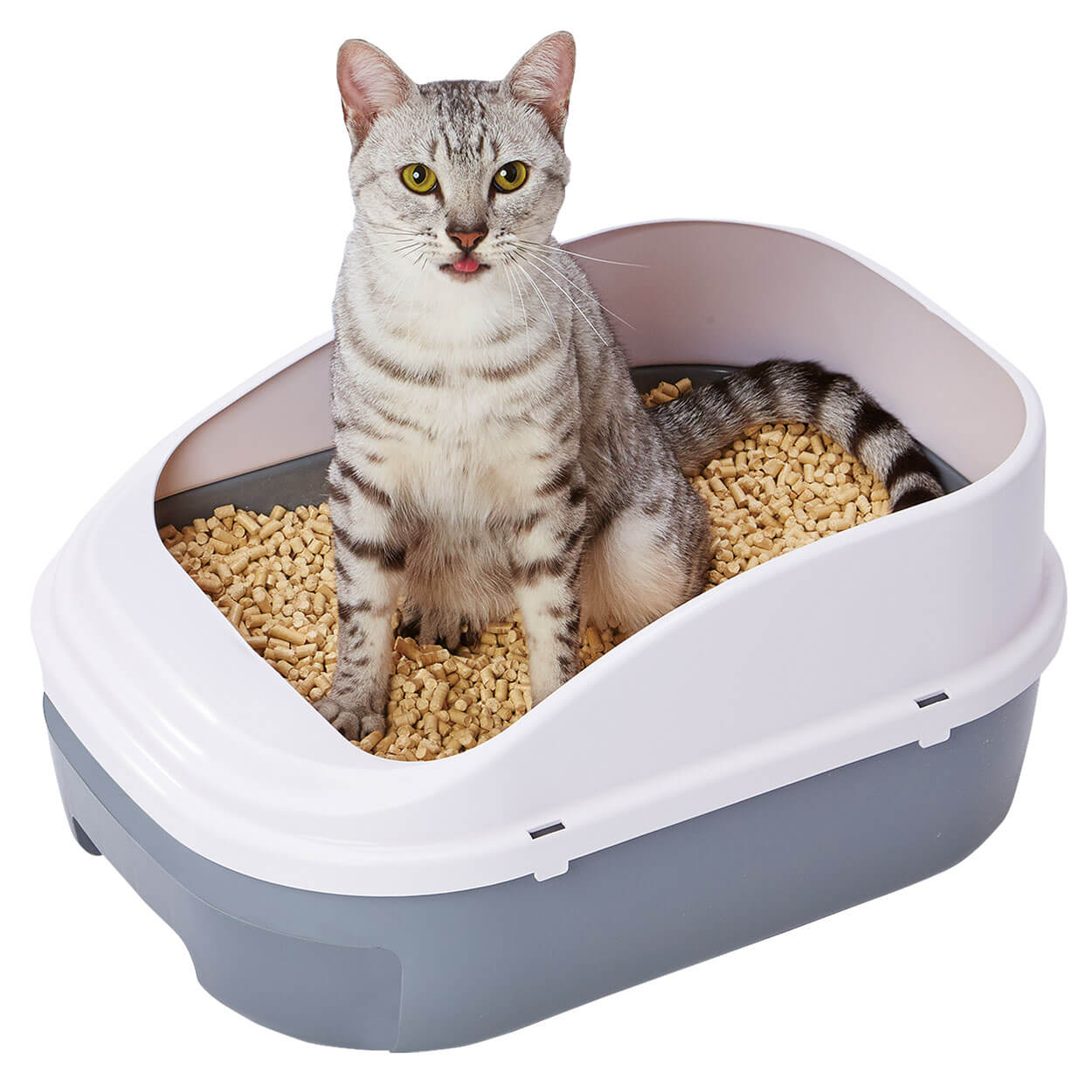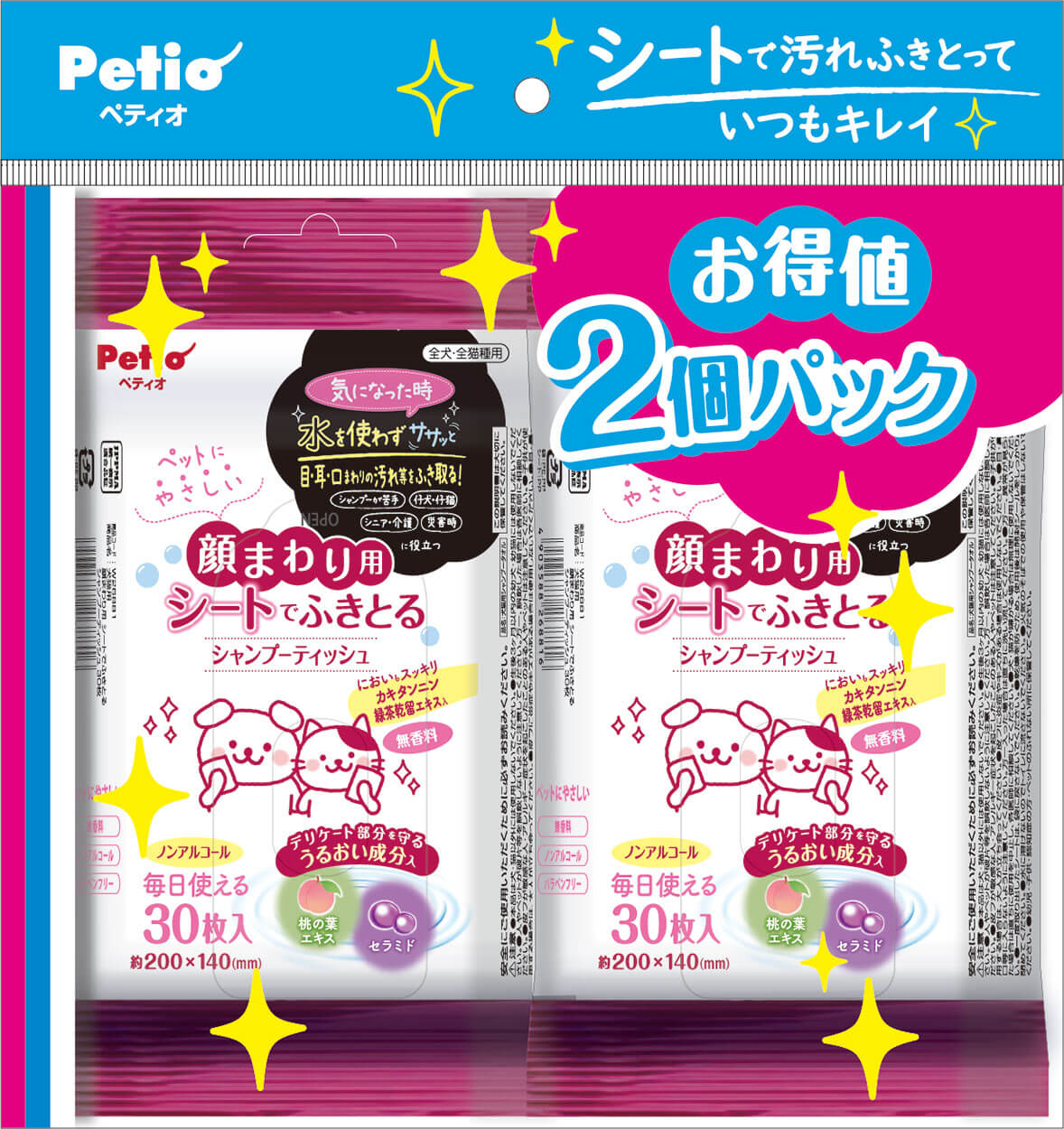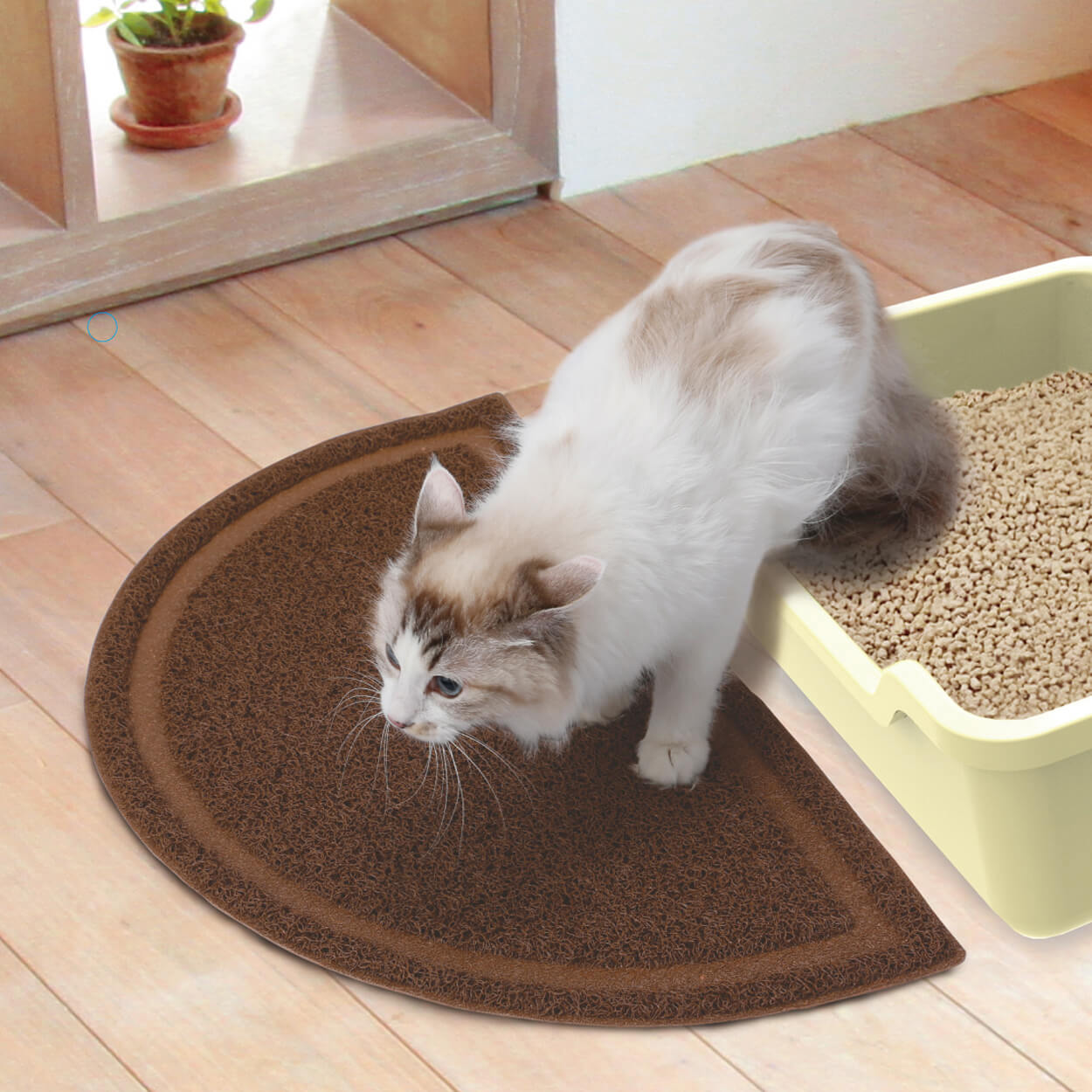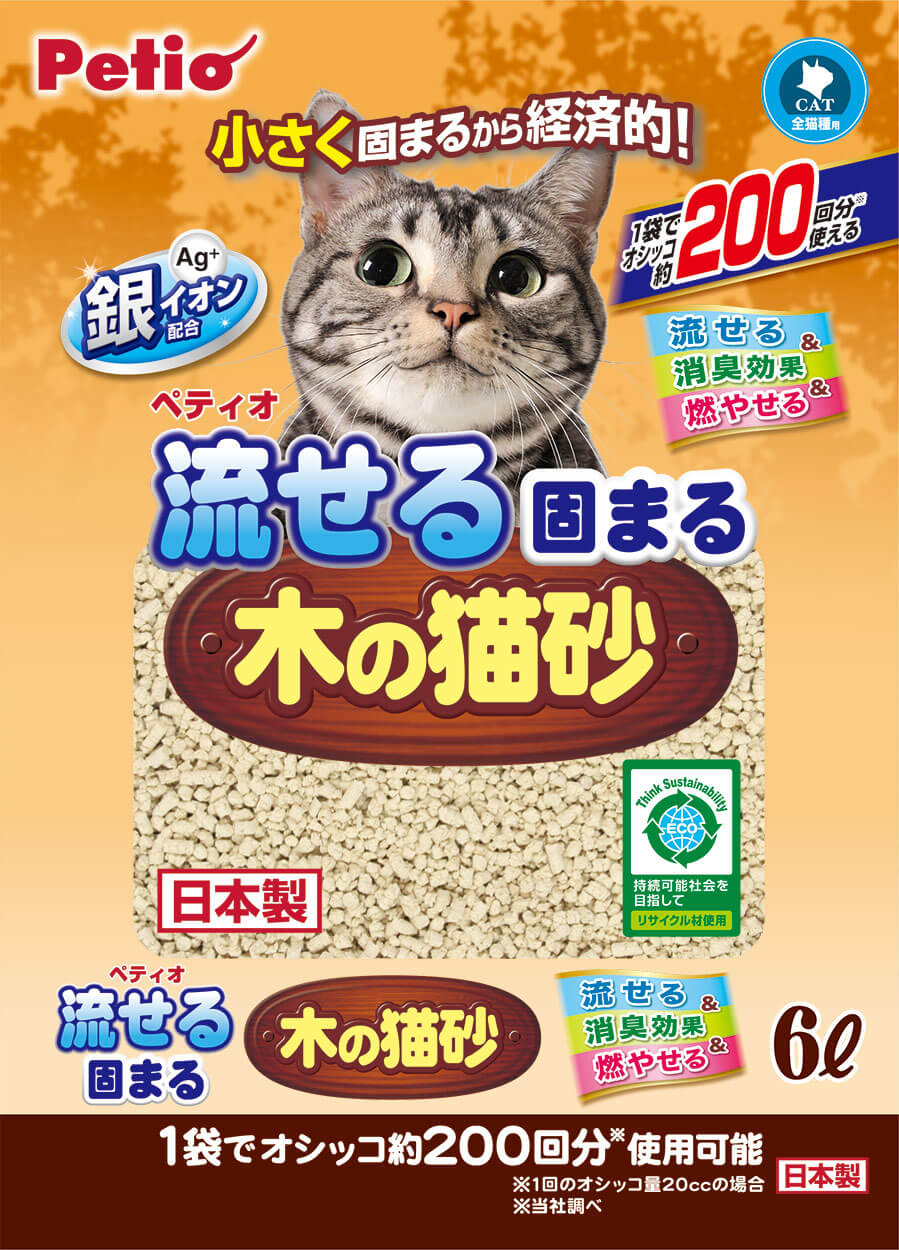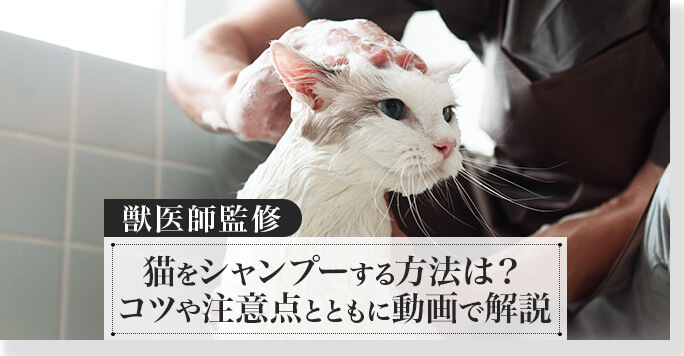Feature / Pickup
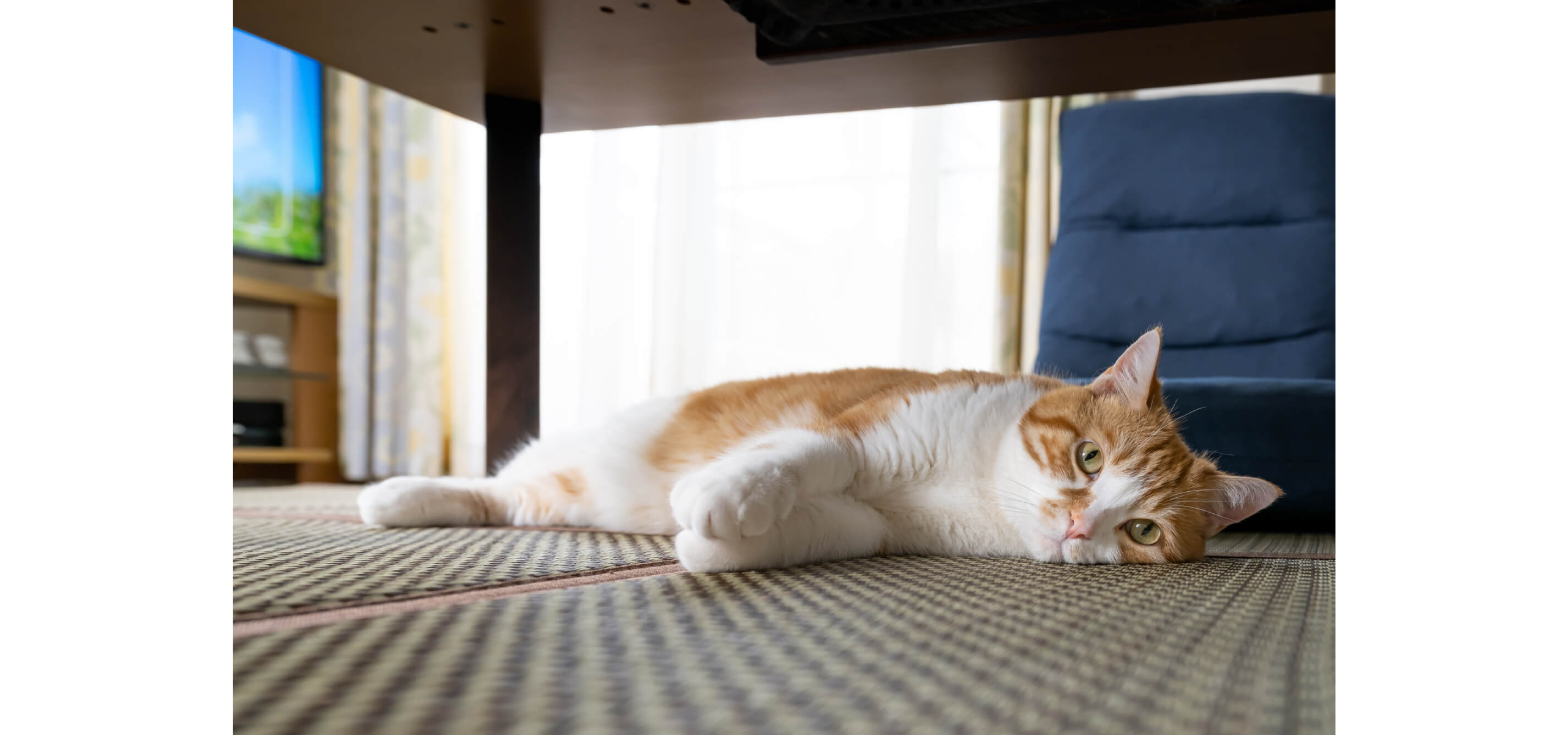
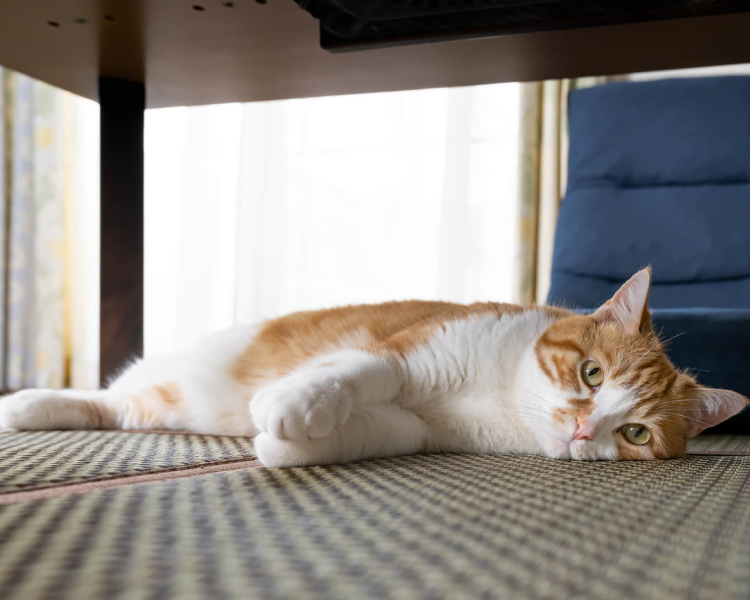
Here we will introduce the possible causes of cat odor and measures to help you live with your cat without the stress of odor. (Last updated: June 7, 2024)

Supervision
3-918-9 Mukuya, Shimada City, Shizuoka Prefecture
Graduated from the Department of Veterinary Medicine, Faculty of Veterinary Medicine, Kitasato University. He is a part-time lecturer at the Renaissance Pet Academy, a vocational school, and a lecturer at the Japan Pet Massage Association and the Pet Medicinal Food International Association. Participated in rescue activities for animals affected by the Great East Japan Earthquake. In addition to general Western medicine, work on animal health through acupuncture and moxibustion treatment, Chinese medicine, pet massage, etc.
1Causes of cat odor
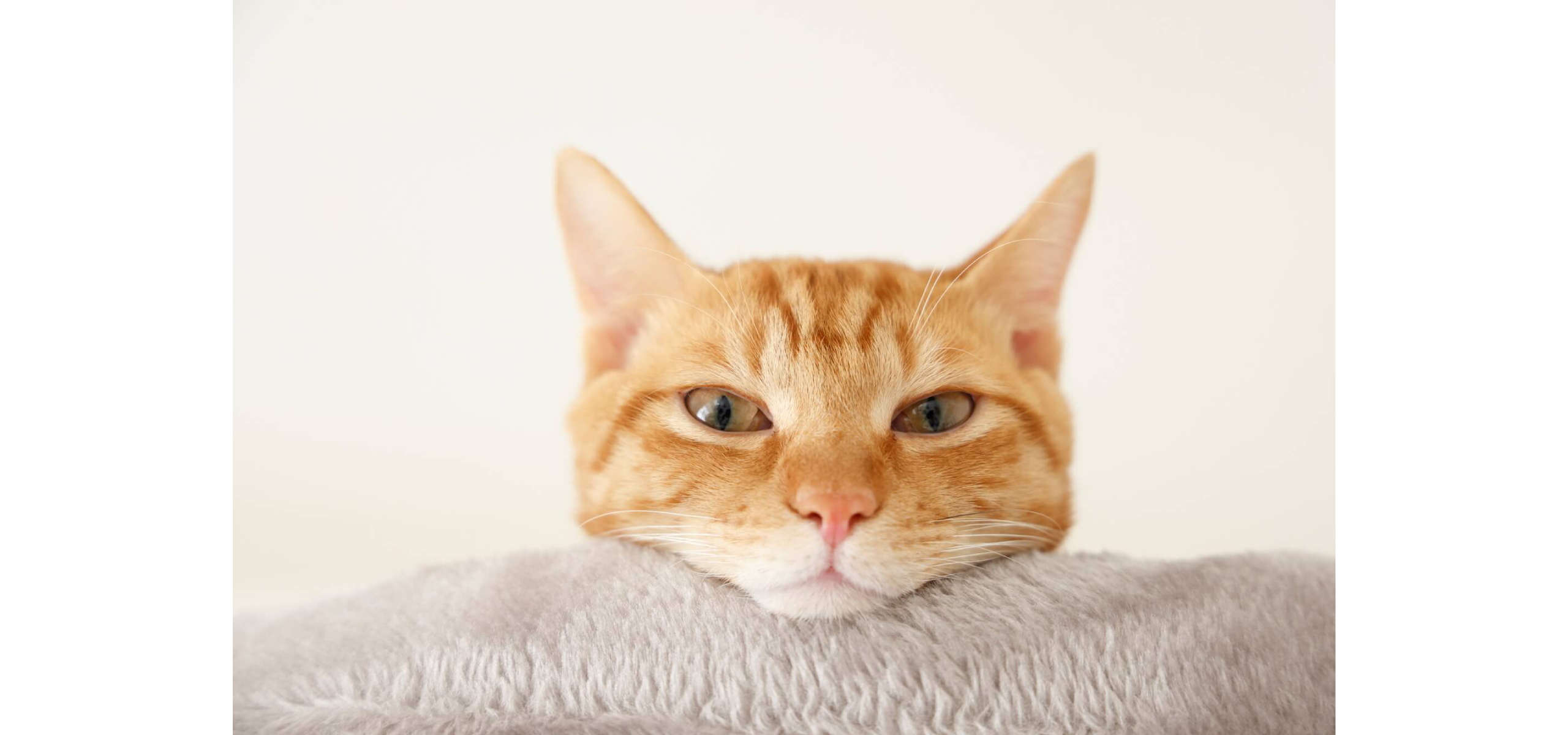
Cats are hunting animals that have the ability to avoid being noticed by predators, so they are generally clean and odorless. If you notice a smell coming from a cat, what could be the cause?
Here are some causes of cat odor.
toilet smell
I think that one of the most bothersome smells when living with a cat is the smell from the litter box.
A substance called ``felinine'' contained in cat urine changes into ``thiol,'' a substance that emits a unique odor when it comes into contact with the air.In particular, the urine of uncastrated males is said to contain a lot of felinine, and has a strong odor.
In addition, cats, being carnivores, tend to eat a lot of animal protein in their food. Animal protein increases the number of odor-producing intestinal bacteria, which means that their feces tend to smell stronger than that of dogs, who are omnivores.
Usually, when a cat finishes using the litter box, they will cover the excrement with sand to remove the smell so that predators won't know where they are. However, if your cat doesn't like covering the excrement with sand, or has a habit of sticking half of its body out of the litter box to remove the excrement, the smell won't be completely removed and a strong smell will fill the room.
Also,If the unpleasant smell continues, you should be careful.If your cat has a bacterial disease, the smell of its urine may change or become stronger. If this smell continues, it may be due to bacterial growth or cystitis, so we recommend taking your cat to the vet as soon as possible.
body odor
This cat has almost no body odor,If your pet does not get enough grooming due to illness or injury, it may emit a smell.In such cases, brushing your dog carefully may help reduce the odor.
However, if your skin is bumpy or itchy, the odor may be coming from an abnormality in your skin. Avoid brushing your dog indiscriminately, keep an eye on it, and take it to the vet if necessary.
If the odor is coming from a specific area rather than the entire body, the following may be the cause:
・If there is a smell coming from inside your mouth
You may have oral problemsIn addition to brushing your cat's teeth thoroughly with a cat toothbrush, try giving them treats and toys that promote dental care.
If you are still concerned about the odor, please take your dog to a veterinary hospital to check for problems such as stomatitis or periodontal disease.
If your bad breath persists despite proper oral care, diabetes, viral infection, kidney disease, or liver disease may be the cause.
・If there is a smell from the buttocks
There are two possible causes of odor from your butt.
One is,Odor from poop that remains on the skinis. In particular, long-haired cats tend to have poop stuck to the fur around their anus, so be sure to check it frequently. If you wipe it with a wet towel or special sheet, the smell will go away.
The other isodor from anal gland fluidis. Anal gland fluid is a fluid that comes from the glands on either side of the anus and has a pungent odor. Normally, it is secreted with poop when defecating, but in children who are born with difficulty in producing anal gland fluid, children with anal adenitis, and children who have lost muscle strength as they get older, the secretion may not be able to be produced. Anal gland fluid may accumulate and produce an odor. If the area around the anal glands is swollen or your cat rubs against the floor, try pressing lightly on the anal glands with your fingers to squeeze out the secretions.
If you notice blood or pus coming out, or if the anal glands cannot be found, we recommend that you take your pet to a veterinarian.
leftovers
Leftover food is surprisingly likely to cause odors.
If you leave your dishes on after the meal,Leftover food or food stuck to the surface can rot and cause odors.Wet food in particular spoils quickly, so leaving leftovers is strictly prohibited. Be careful not to leave leftovers out, not just in the hot and humid summer, but also in the winter when the heater is on. It is also important to wash the dishes immediately after your pet has finished eating.
Also, if food is stored in direct sunlight or in a humid place, bacteria may grow during storage, causing the food to smell. Store food according to the storage instructions on the package, and use it up as soon as possible after opening.
2Measures against odors around the toilet
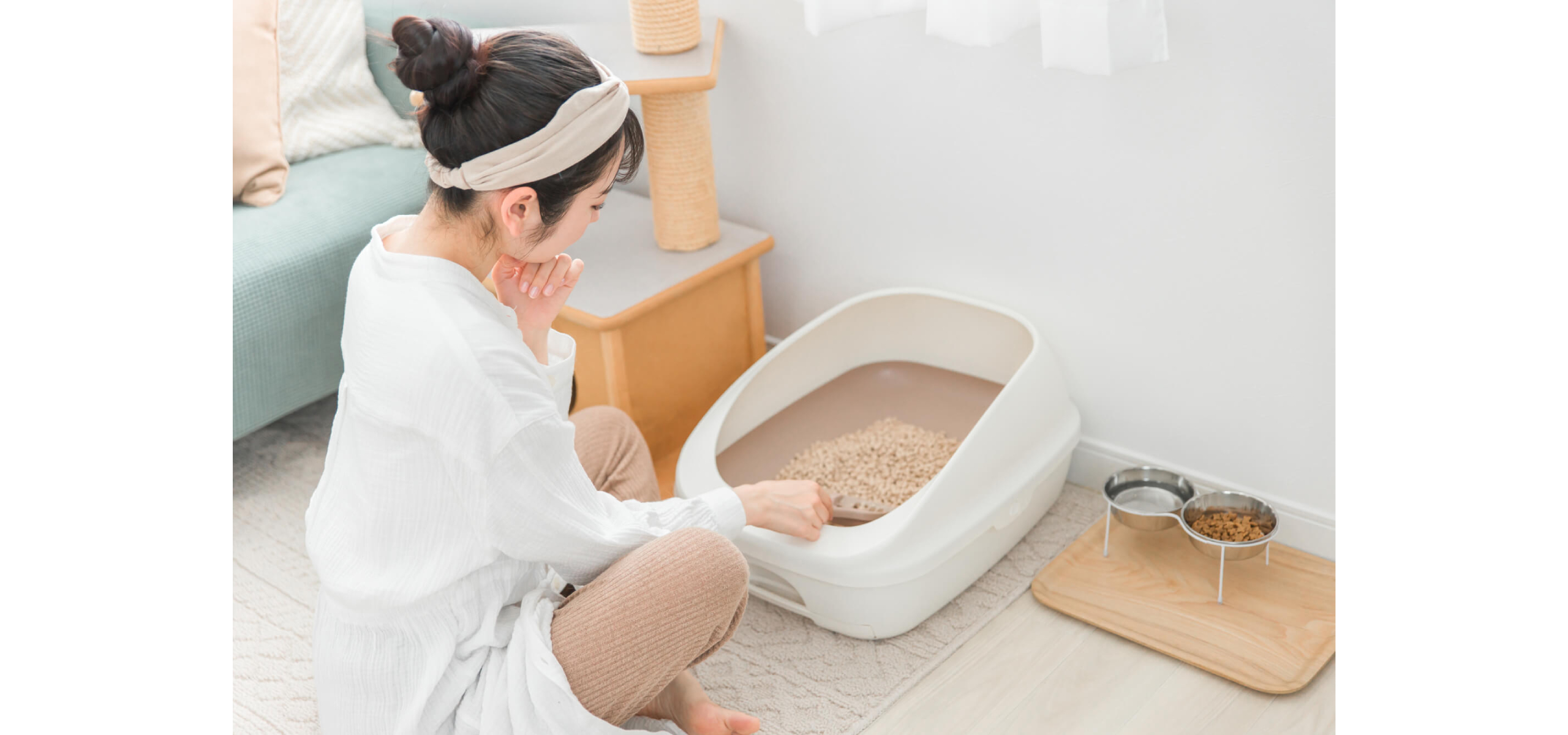
Take adequate care of poop and pee
If you leave your cat's poop or urine unattended, the smell will fill your room.
When you know that your pet has used the toilet, dispose of the waste as soon as possible and keep the toilet clean. Prompt disposal of the waste can significantly reduce the odor from the toilet. Washing the entire toilet once a week and drying it in the sun can also help prevent the growth of bacteria.
Also,If excrement remains in the toilet, your cat may become reluctant to use the toilet and may hold back or defecate elsewhere.The basic rule for a cat's litter box is to place it in a place where the cat can relieve itself calmly, but it's also a good idea to place it in a place where the owner can easily see the cat and clean up the waste. In order to keep the litter box comfortable for your cat,"Number of cats + 1"The ideal number of toilets is
Take measures to prevent cat litter from scattering around the room
One of the causes of odors is cat litter with excrement attached to it that scatters around.
Cats have the habit of smoothing out the cat litter in the litter box before they defecate, and then covering their feces with more cat litter after they've finished. There are many different ways to scatter cat litter, from those that scatter it quietly, to those that jump up with their hind legs to scatter it vigorously, to those that scoop it out carefully multiple times.
Also, if your cat comes out of the litter box with cat litter stuck between its paws or claws, the litter will scatter around when it walks around the room. Therefore, it is important to be careful around the litter box as cat litter is likely to scatter.
Try designing the shape of the toilet or using a toilet mat to prevent cat litter from scattering as much as possible.Litter boxes come in a variety of shapes, from simple box-shaped ones to roofed dome-type ones and system litter boxes. A roofed litter box with access from above will help prevent cat litter from scattering to some extent. For larger or energetic cats, a slightly larger litter box will allow them to use the toilet more spaciously and prevent cat litter from scattering. Choose a litter box that suits your cat's habits and physique.
A toilet mat is also an effective item to prevent cat litter from scattering. When your cat walks on the litter mat, it will remove the cat litter from the soles of its feet.
Use cat litter that has deodorizing properties
We also recommend switching from the cat litter you normally use to one with a stronger deodorizing effect. Litter that is easy to clean and does not scatter easily is also effective in preventing odors.There are many different types of cat litter, and you can choose one according to your cat's preferences and your own.。
We will introduce the most common types of cat litter and their features.
・Mineral type
It is highly absorbent and the urine tends to solidify, making it easy to dispose of.
It is heavy and prevents scattering. On the other hand, since the grains are fine, there is a disadvantage that sand can easily get caught between the paw pads.
・Wood type
Wooden cat litter made from thinned wood such as cypress has a natural wood scent, has a strong deodorizing effect, and can be disposed of as combustible garbage.
Some can even be flushed down the toilet.
・Paper type
It is made from pulp and is very light, making it easy to carry. However, be careful as paper dust may fly around.
The white type has the advantage of making it easier to notice changes in your urine.
・Food type
Since it is made from food such as okara, it is safe for cats who tend to accidentally swallow cat litter.
Because they dissolve easily in water, many of them can be flushed down the toilet, which has the advantage of reducing the burden of cleaning.
3Measures against odors in areas other than the toilet area
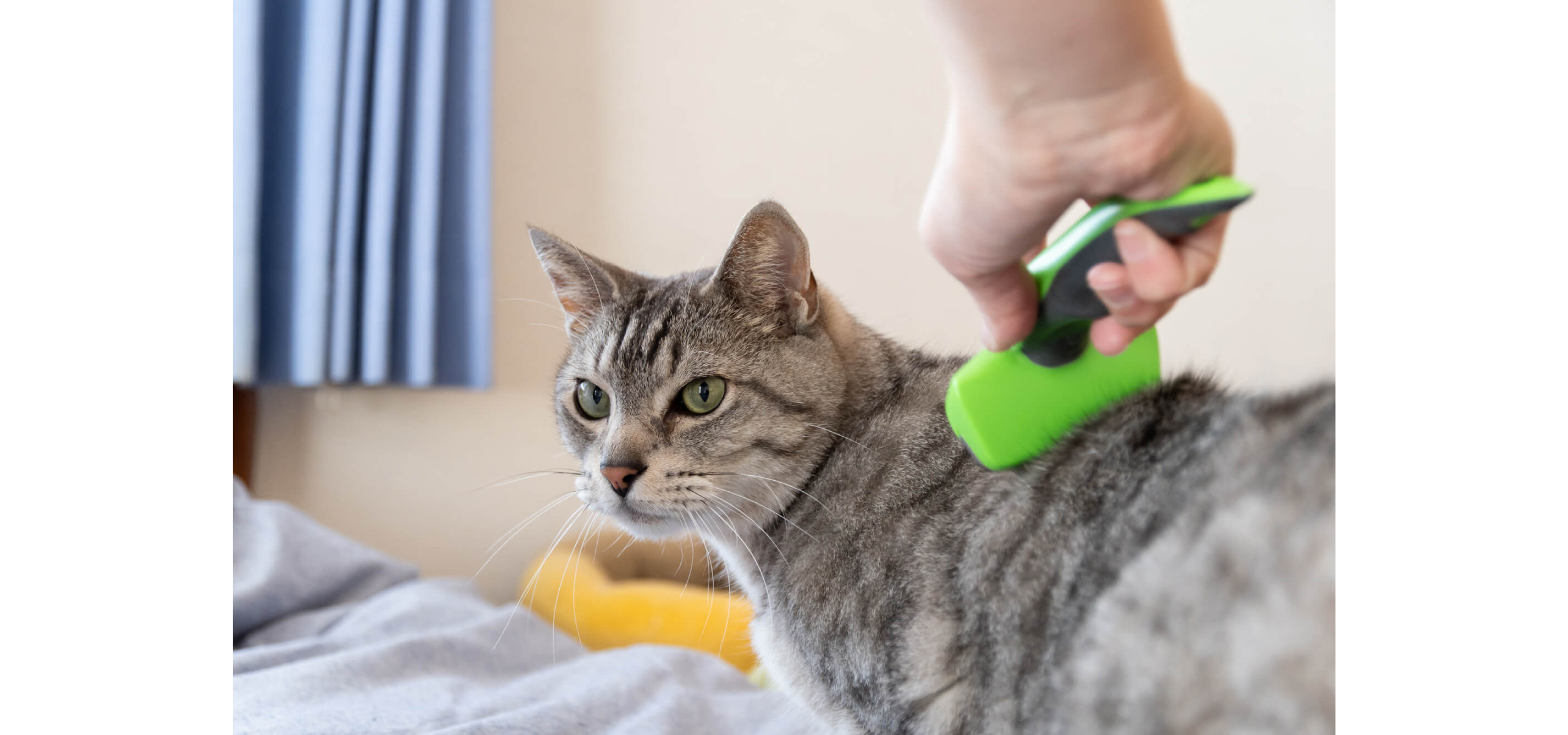
brush regularly
Cats groom themselves, so they generally don't need to be brushed as much as dogs.
But,Dogs who are not good at grooming or who are not grooming properly for some reason may have an odor.Brush your cat's coat to remove dirt and loose hair. We also recommend brushing your cat's coat regularly to reduce hairballs that cats tend to swallow when licking.
If the dirt cannot be removed by brushing or if the body is extremely dirty,You can also wipe it with a hot towel or wash it with cat shampoo.。
If your cat is afraid of water or doesn't want to bathe because he or she is being held down, even just once, you may never be able to shampoo your cat again. Wash your cat gently, taking precautions such as pouring hot water little by little and making sure your cat's feet are not slippery in the bath.
食べ残しはすぐ片付ける
食べ物をあげた後は、食べきっているかどうかを確認し、もし残していたらすぐに片付けましょう。使ったお皿を放置せず、都度洗って乾かすこともにおい対策の上では重要です。
食べ残しが多い場合、1度に多くあげすぎている、好みの食べ物ではない等の原因が考えられます。その場合は、1度にあげる量を調整したり、新しいものをあげたりするなど、工夫をしてみてください。
こまめに換気する
ネコちゃんを飼っているとエアコンをつけっぱなしにしている方も多いかと思います。
そのため、中々換気のタイミングは難しいかと思いますが、定期的に窓を開け空気を入れ替えることで、お部屋ににおいが充満することを防げます。
ネコちゃんの気になるにおいにオススメ商品
-
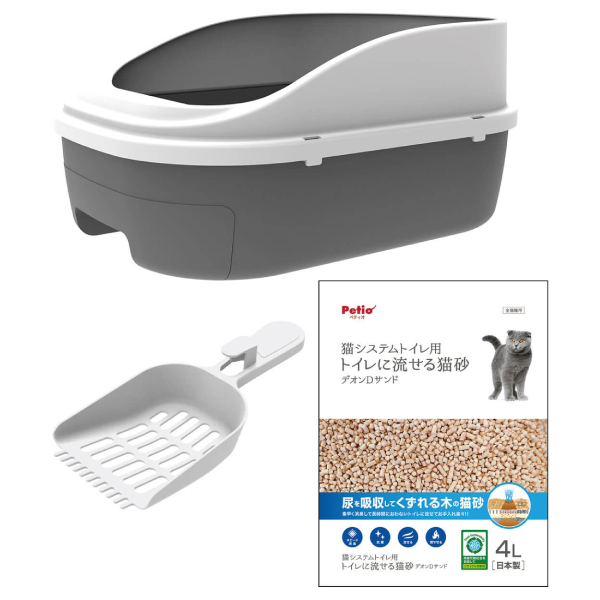
-
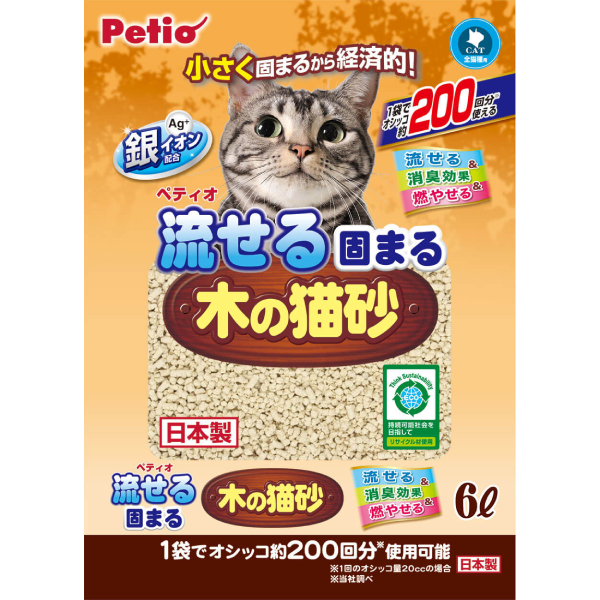 Forest solid wooden cat sand小さく固まり、トイレに流せて後処理ラクラクな木の猫砂。主原料はリサイクル材の木粉がだから、環境にも優しくフィトンチッドにより消臭効果もあります。可燃ごみとして出せるのも嬉しいポイント。
Forest solid wooden cat sand小さく固まり、トイレに流せて後処理ラクラクな木の猫砂。主原料はリサイクル材の木粉がだから、環境にも優しくフィトンチッドにより消臭効果もあります。可燃ごみとして出せるのも嬉しいポイント。 -
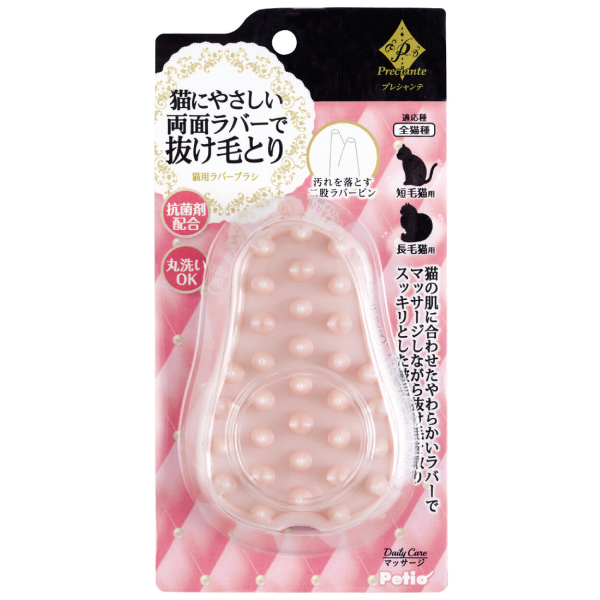 Rubber brush for Plechante cat猫の肌に合わせたやわらかいラバーでマッサージしながら抜け毛を除去できるブラシ。用途に合わせて長いピン短いピンの両面使えるから便利。
Rubber brush for Plechante cat猫の肌に合わせたやわらかいラバーでマッサージしながら抜け毛を除去できるブラシ。用途に合わせて長いピン短いピンの両面使えるから便利。
4Use products wisely to prevent cat odor!
5
Frequently Asked QuestionsCat smell Q&A
- ネコちゃんのにおいの原因は?
-
原因の多くは、トイレのにおい、体臭、食べ残しです。体臭の場合は、健康トラブルを抱えている場合もあるので、長く続くようなら、動物病院への受診も検討してください。
- トイレのにおい対策は、どのように行えばよい?
-
うんちやおしっこをすぐに片付けること、飛び散りにくく消臭効果が高い猫砂に変えることなどが効果的です。
- トイレ以外のネコちゃんのにおい対策は?
-
定期的にブラッシングをすること、食べ残しを放置しないこと、こまめに換気をすることなどでにおいを防げます。
Special feature that you want to check together
-
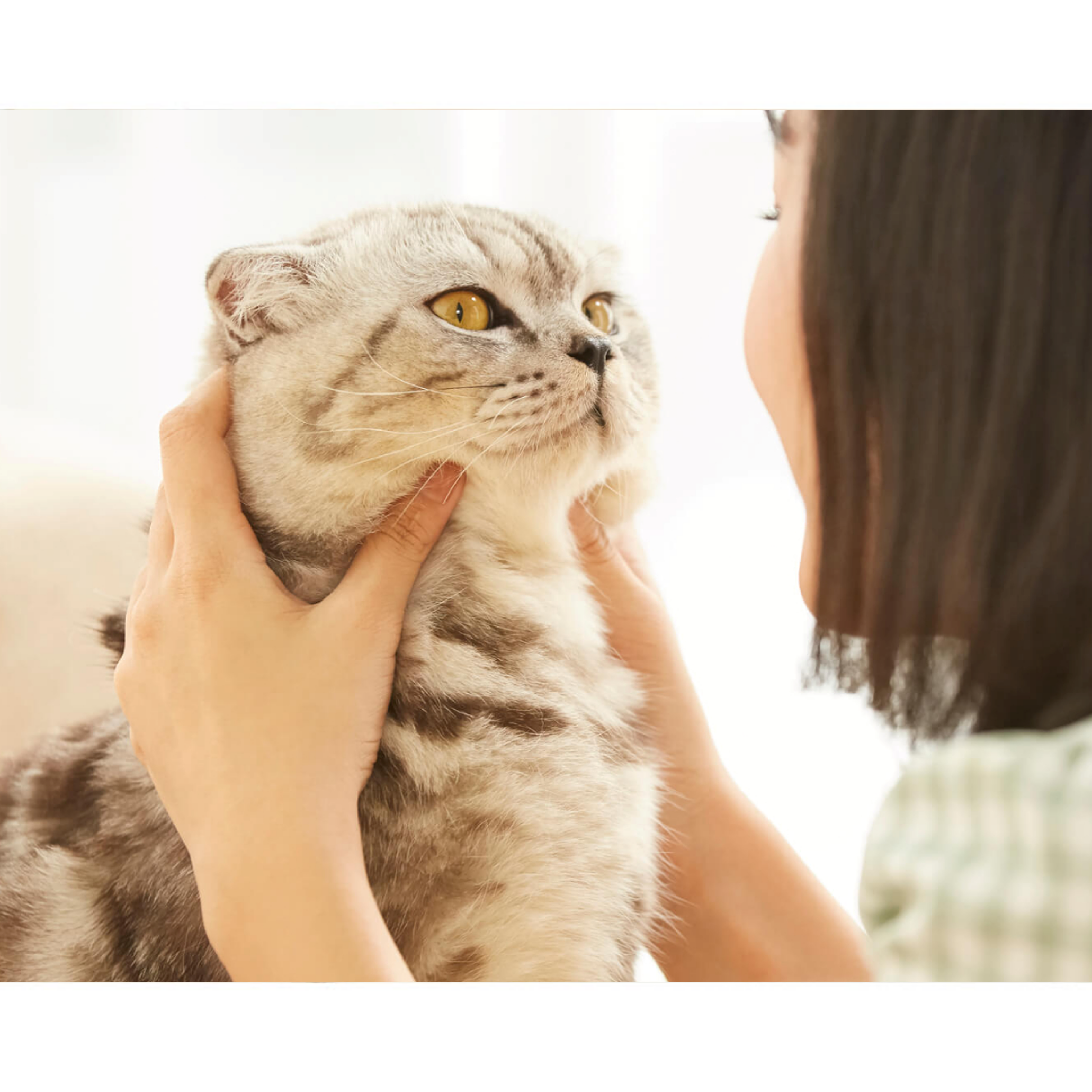 What is the correct way to raise a cat? Explanation of necessary advance preparations and mindset
What is the correct way to raise a cat? Explanation of necessary advance preparations and mindset -
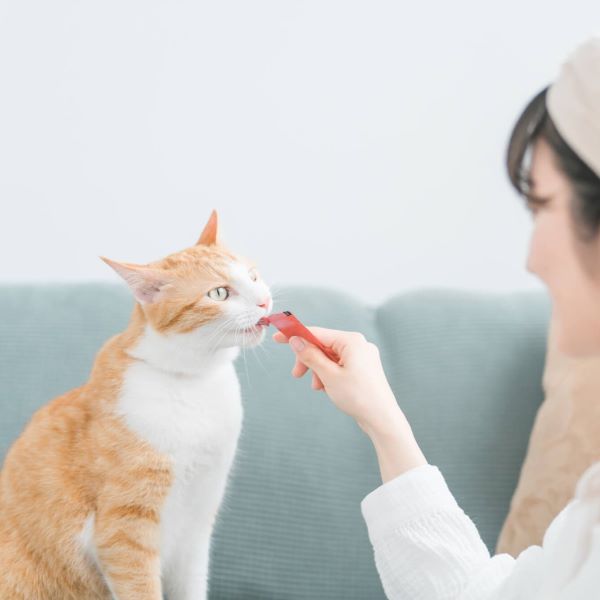 How should I train my cat? Explanation of basic items and precautions
How should I train my cat? Explanation of basic items and precautions -
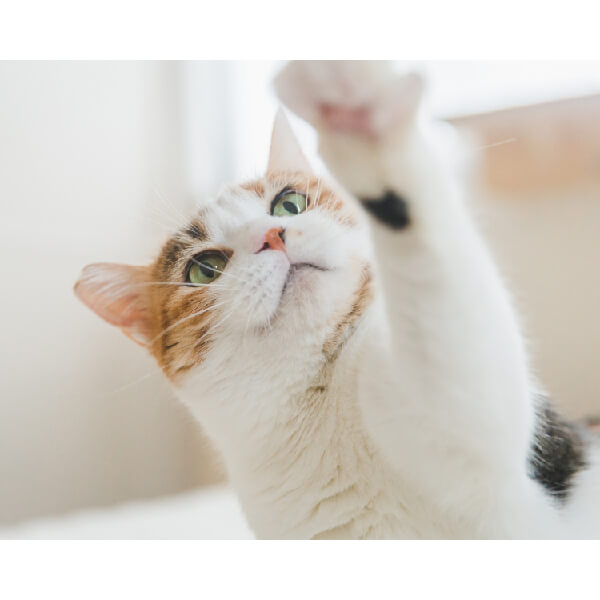 Signs of cat illness and poor physical condition and health check method
Signs of cat illness and poor physical condition and health check method -
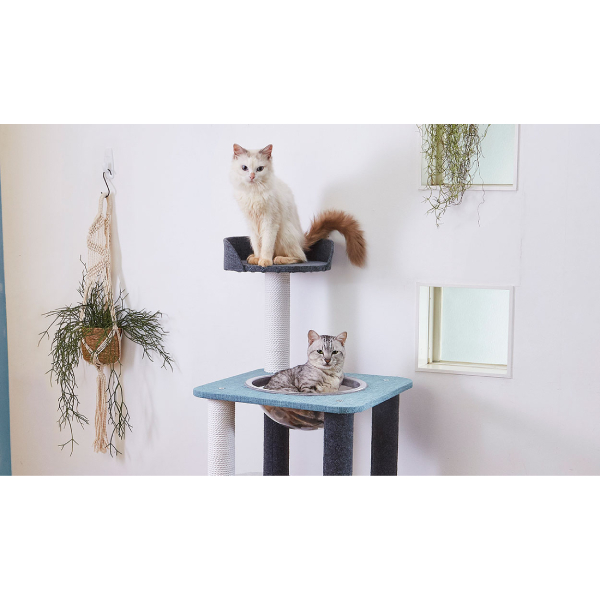 What are the important points when keeping your cat indoors? Explanation along with how to choose towers and circles
What are the important points when keeping your cat indoors? Explanation along with how to choose towers and circles

